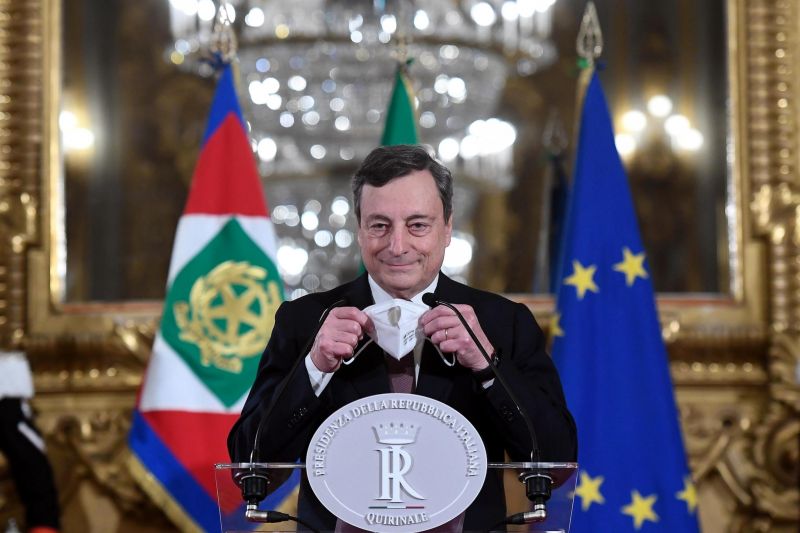Italy: Mario Draghi sworn in as new PM

Rome: Former European Central Bank chief Mario Draghi was formally sworn in as Italy’s new prime minister, against the backdrop of the deadly coronavirus pandemic and a crippling recession.
The appointment of the 73-year-old known as “Super Mario” capped weeks of political instability for the country still in the grips of the health crisis that has killed more than 93,000 people.
“I swear to be loyal to the Republic,” recited Draghi, as he stood before President Sergio Mattarella in the ornate presidential palace in a ceremony broadcast live on television.
Members of his new cabinet, who include technocrats, veteran politicians and ministers held over from the previous government, each took the oath of office.
Draghi was parachuted in by Mattarella after the previous centre-left coalition under premier Giuseppe Conte collapsed, leading Italy rudderless at a critical time.
He spent the last 10 days assembling a broad-based coalition and on Friday night formally accepted the post of premier in a meeting with Mattarella, after which he publicly revealed the new cabinet for the first time.
On Wednesday, Draghi will be presented to the Senate, the upper house of parliament, followed by the lower Chamber of Deputies on Thursday for a confidence vote that will give the final official blessing to his government.
“Break a leg,” read the headline on La Stampa daily Saturday, as an Ipsos poll in the Corriere della Sera daily showed that 62 percent of Italians supported Draghi.
Draghi has the support of a rainbow coalition ranging from leftists to Matteo Salvini’s far-right League. It includes the populist Five Star Movement (M5S), the centre-left Democratic Party (PD) and Italia Viva—who made-up the previous government and then fell out over the handling of the Covid-19 pandemic.
M5S, the biggest party in parliament which began life as an anti-establishment movement, was split over whether to support a government led by an unelected technocrat. But in an online vote, members backed Draghi by 59 percent, after securing the promise of a new super-ministry for “ecological transition”.
That post has gone to renowned physicist Roberto Cingolani, who works at Italian aeronautics giant Leonardo.
The senior deputy governor of Bank of Italy, Daniele Franco, was named as the new economy minister, while Roberto Speranza and Luigi Di Maio stay on at health and foreign affairs, respectively.
Italy has high hopes for its new leader, who famously said he would do “whatever it takes” to save the eurozone in the midst of the 2010s debt crisis.
Although he himself has no political power base, Draghi can count on his experience during years working in the Italian civil service, as well as his banking career. His arrival was greeted with delight by the financial markets, and Italy’s borrowing costs dropped to a historic low this week.





